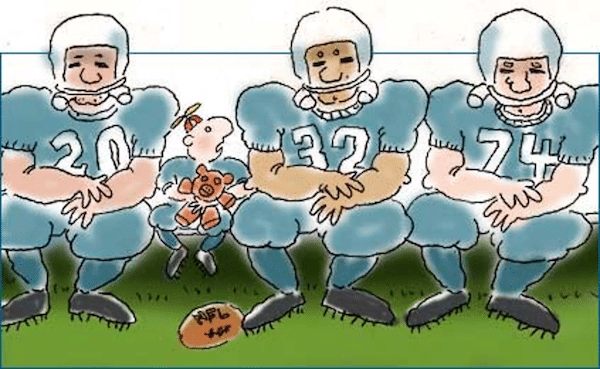Sideline Stress

Sideline Stress: How Parents and Providers Can Team Up (Not Tense Up)
Whether it’s ballet, baseball, or beginner band—when kids step into the world of extracurriculars, a whole cast of grown-ups steps in with them.
There are the coaches, instructors, and daycare providers who give time, heart, and guidance to help kids learn and grow. And there are the parents—loving, passionate, and deeply invested—who want nothing but the best for their child.
So, what happens when those two sides don’t see eye to eye?
Let’s talk about the often-unspoken tension between caregivers and caretakers—and how that friction doesn’t just affect the adults involved. It impacts the kids too; in ways we can’t always see.
When the Grown-Ups Clash, Kids Notice
Children are incredibly perceptive. Even when they don’t understand everything that’s said, they feel the energy in the room. When parents and coaches are out of sync—through snide comments, visible frustration, or mixed messages—kids internalize that conflict.
And that can create real confusion:
- Do I follow my coach’s instructions, or listen to my parent?
- Why does my mom roll her eyes when my instructor talks?
- Am I doing something wrong by trusting an adult that is not my parent?
These aren’t just passing thoughts—they can lead to internal stress, hesitation, and even performance anxiety. When a child feels caught in the middle, they’re forced to navigate adult emotions before they’re developmentally equipped to do so.
Tough Trust Decisions for Tender Minds
Imagine being 8 years old and hearing, “Your coach doesn’t know what they’re doing,” right before practice. Then being told by that same coach, “You’ve got this—just trust me.”
Which adult do you listen to? Who do you believe?
When parents undermine an instructor—especially in front of their child—it not only chips away at the coach’s credibility but also puts the child in a loyalty bind. And that dynamic can erode the trust and respect a young person needs to feel safe, supported, and confident while learning.
Mixed messages muddy the water. Clear, consistent support builds the bridge.
For Parents: Passion is Great—Perspective is Better
We know how much you care. You want your child to succeed. You’ve juggled your work schedule, brought snacks, and maybe even studied the playbook so you can help them at home. That’s love in action.
But if that love turns into second-guessing, sideline coaching, or criticizing the instructor—especially where your child can hear—it can do more harm than good.
Instead, consider this:
- What kind of relationship do I want my child to have with other mentors?
- Am I showing them how to give feedback—or how to undermine it?
- Am I prioritizing my child’s growth, or my own expectations?
Let your child know it’s okay to trust their instructor—and that you’re on the same team.
For Providers: Your Patience Shapes More Than Just Skills
Coaches and instructors often play a powerful role in a child’s life. Beyond teaching skills or routines, you’re helping shape confidence, resilience, and emotional regulation. That’s no small task.
When parent dynamics get tricky, it’s tempting to retreat or react. But kids are watching you too.
When you model calm, clarity, and respect—even under pressure—you teach them how to handle difficult situations. When you partner with parents rather than push back, you build a bridge that benefits the child.
If you ever feel undermined, find a private and professional moment to reset the tone. Kids shouldn’t be the go-between for adult tension. Let them stay focused on being kids.
Shared Goals, Stronger Bonds
Everyone wants the same thing: a safe, positive, enriching experience for the child.
That’s only possible when parents and providers work with each other, not around each other.
Here’s how we do that:
- Use curiosity, not criticism. Ask, don’t assume. “Can you walk me through your approach with the group?” goes further than “Why isn’t my kid getting more time?”
- Speak with respect—especially around kids. Save concerns for private chats. Children absorb more than we think.
- Give praise freely. Gratitude builds trust and eases tension.
- Keep the child’s emotional health at the center. If what you’re doing is making them anxious or conflicted, it’s worth rethinking.
✅ Final Thought
Kids don’t just learn from drills, routines, or games. They learn from the way adults talk, listen, and solve problems. They watch how we handle differences, how we speak about others, and how we show up under pressure.
When parents and providers model trust and collaboration, we teach kids one of life’s most valuable lessons: that respect and teamwork aren’t just skills—they’re relationships worth building.
At Dealing With Debt, we know that emotional well-being and financial stability go hand in hand. That’s why we offer tools, guidance, and community to help reduce tension, build stronger connections, and support the whole family—one honest conversation at a time.






Responses